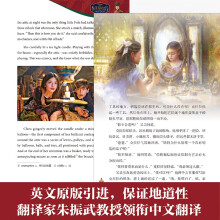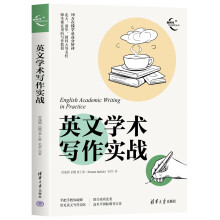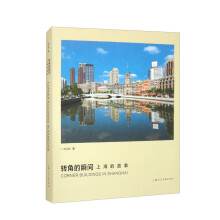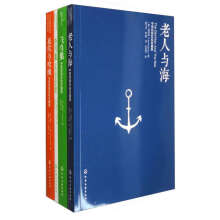










《牛津英国文学史:维多利亚人》是“外国文学研究文库”系列第二辑的一本。该系列旨在将国外的文学学界的学术成果及时引进和介绍给我国外国文学学者、学生及爱好者,反映外国文学研究领域在世界范围的发展趋势与前沿探索。
该系列以英文原文的形式出版,并辅之以国内这一领域的资深学者撰写的导读,帮助读者把握作品的脉络,掌握其思想要点,更全面、更深入地理解作品要义。
本书以宏观的视野与细微、具体、多重的观察视角相结合,从不同的立场理解各方意见,并且大量运用19世纪文字记录,供学习者不断发掘、探索维多利亚时代的优秀文学。
《牛津英国文学史:维多利亚人》与一般的文学断代史不同,不受文类、时段等概念的制约,而是可以理解为由“时代背景”和“作家作品”两大部分构成,重大主题在各章各节不断回环。它以宏观的视野与细微、具体、多重的观察视角相结合,从不同的立场理解各方意见,并且大量运用19世纪文字记录,使维多利亚时代的优秀文学最大限度地包容并跨越纷争和对立,成为供后来者和学习者不断发掘、探索的宝地。
《牛津英国文学史:维多利亚人/外国文学研究文库》:
At its most neutral the best name for the position of the scientists, suggested James Ward, was naturalism. Though, like the city, science might seem part of a modern denaturalized world-view, in its own terms it was offering a far more, not a far less, naturalistic view, in which the world and its inhabitants, including the minds of human beings, was explicable in terms of constant laws of nature. This understanding of nature belonged to science, not to theology or cosmology, and it was offered as inductive, not deductive. The French sociologist Auguste Comte (1798-1857) had divided the history of human intelligence into three chronological developments: first, the theological, committed to first and final causes; next, the metaphysical, in which supernatural agencies were replaced by abstract forces; finally, the positive state, when the human mind gives up its search for absolutes respecting the origin and destiny of the world and confines itself to the discovery of real facts and the actual laws that govern them. It was as though the Victorian period, beginning to quot the first, was still urching in transition between the metaphysical and the scientific.
There was, after all, a historical and economic logic which seemed to be behind this development. The increased specialization of the various branches of human knowledge-separated not only from each other but from reference to a First and Absolute Cause-was an application, to the whole intellectual universe, of the principle of the division of labour that Adam Smith had brought to bear upon political economy. To observers such as James Ward, nineteenth-century science appeared to be the product of the same social, economic, and secularizing conditions that also produced the development of the city.
For certainly, the most important scientific thinking in the age took its starting point from a sense of the pressures acting within and upon the social and economic development of human beings: above all, the pressures of population. By what is otherwise a remarkable coincidence, each of the three major proponents of a theory of evolution in Victorian England-Herbert Spencer, Charles Darwin, and Alfred Wallace-independently found a single essay from the recent past taking a decisively clinching place in the formation of their thinking. It was T. R. Malthus's Essay on the Principle of Population, first published in its full pessimism in 1798 and modified in 1803.
Malthus's hard law of nature was that population always tended to increase in geometric ratio (2, 4, 8, 16) whereas the means of subsistence could only be increased in arithmetic ratio (2, 4, 6, 8). Thus population would always threaten to outstrip resources. But if the potential increase in population was great, and yet the actual increase was extremely slow, then the difference must be due to the invisible but necessary existence of the remorselessly self-acting law of a 'great and constant check to population'. The great natural check to the increase of plants and animals must be 'want of room and nourishment', creating premature death for all those who were too many. And there were always too many. The role of humans in this terrible natural wastage was not to try, at peril of our future, to ignore those checks: on the contrary, the influence of Malthus lay belund the creation of the New Poor Law of 1834 and the workhouse principle, since it was argued that giving extra financial relief to the poor only meant artificially encouraging them to breed more. The only room for manoeuvre was, as the 1803 revision tried to emphasize, to channel those bleak checks into as beneficial a social form as possible-by substituting for the threat of famine, for example, the strategy of delayed marriage. There was no harmony between man and the planet; the planet did not provide a natural home but was like a crowded city; poverty and suffering were natural. Yet with that Hobbes-Iike view of the war of nature, Malthus was no infidel theoretician; he was a Christian minister who saw a deeply fallen world of nature as an arena of struggling probation.
……
General Editor’s Preface
List of Figures
A Note on References
Introduction
1. Rural to Urban 1830-1850
I. A New World
II. The Challenge to Thinking
2. Nature
I. Darwin and the Impact of Science
II. Cosmologies and Anthropomorphisms: Darwin, Spencer, and Ruskin
III. Beyond Nature and After Religion: The Future in J.S. Mill and T. H. Huxley
3. Religion
I. 1830-1850: Evangelicalism, the Broad Church, and Tractarianism
II. The Mid-Victorian Change
4. Mind
I. 'The New Psychology': Psychology as a Branch of Science
II. 'Psychology is pre-eminently a philosophical science'
III. Psychology, the Unconscious, and Literature
5. Conditions of Literary Production
I. The Literary Profession, the Book Trade and Culture
II. The Rise of Prose
III. New Voices
6. The Drama
7. Debatable Lands: Variety of Form and Genre in the Early Victorian Novel
I. Post-Aristocratic: Bulwer-Lytton, Disraeli, and Kingsley
II. Post-Aristocratic: Thackeray versus Dickens
8. Alterative Fiction
I. The Sensation Novel
II. Fairy Tales and Fantasies
9. High Realism
I. Two Novels of the 1830s and their Legacy
II. Trollope and George Eliot
10. Lives and Thoughts
I. Life-Writing
II. Writing about Life
11. Poetry
I. The Form in Difficulties
II. Long Poems and Sequence Poems
III. From May to September: Poetry and Belief
Conclusion
Author Bibliographies
Suggestions for Further Reading
Index
温馨提示:请使用中新友好图书馆的读者帐号和密码进行登录
菲利普·戴维斯(Philip Davis)是利物浦大学文学教授,专注于文学、情感、人类思维的研究,并且对文学思维与日常关于生存的思维的异同等感兴趣。他撰写了“牛津英国文学史”中的《维多利亚人》一书。